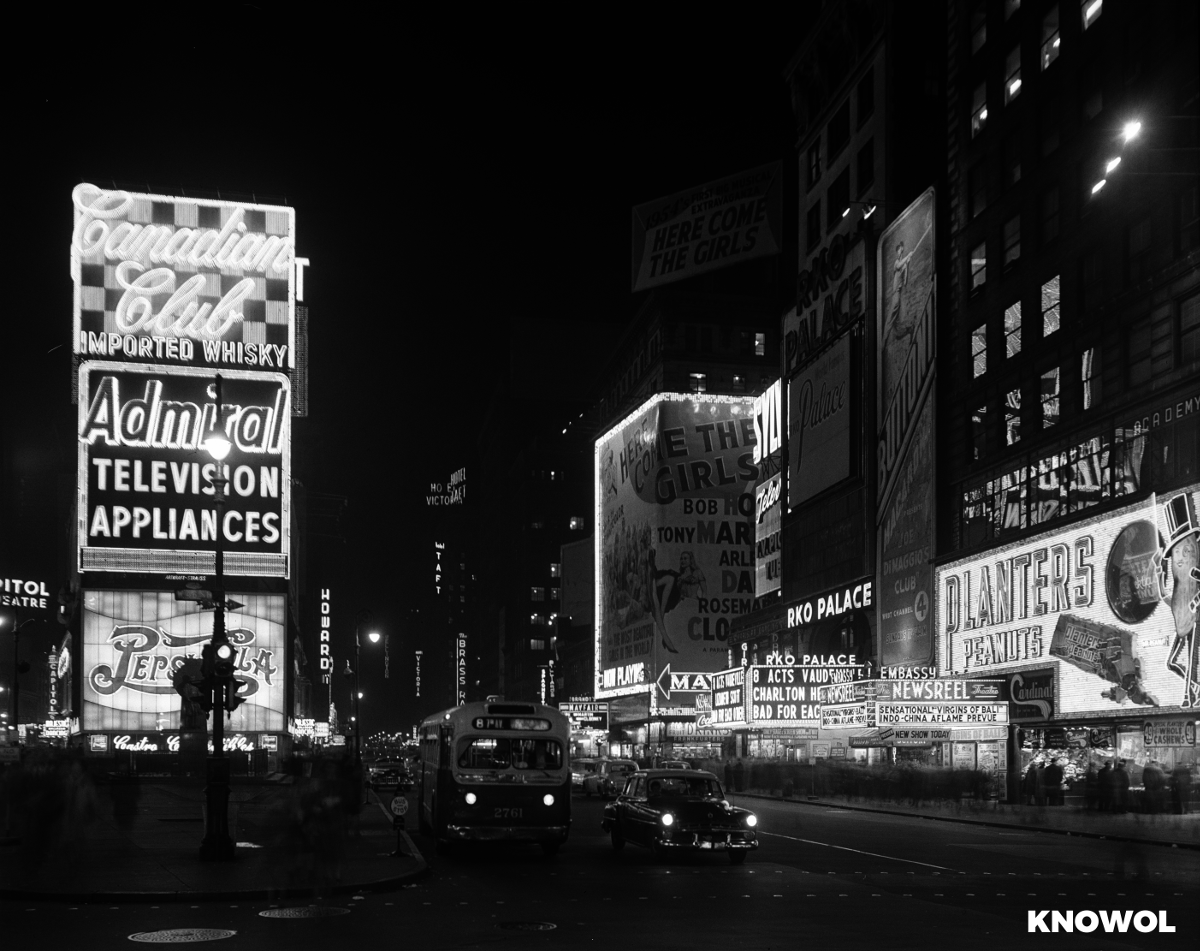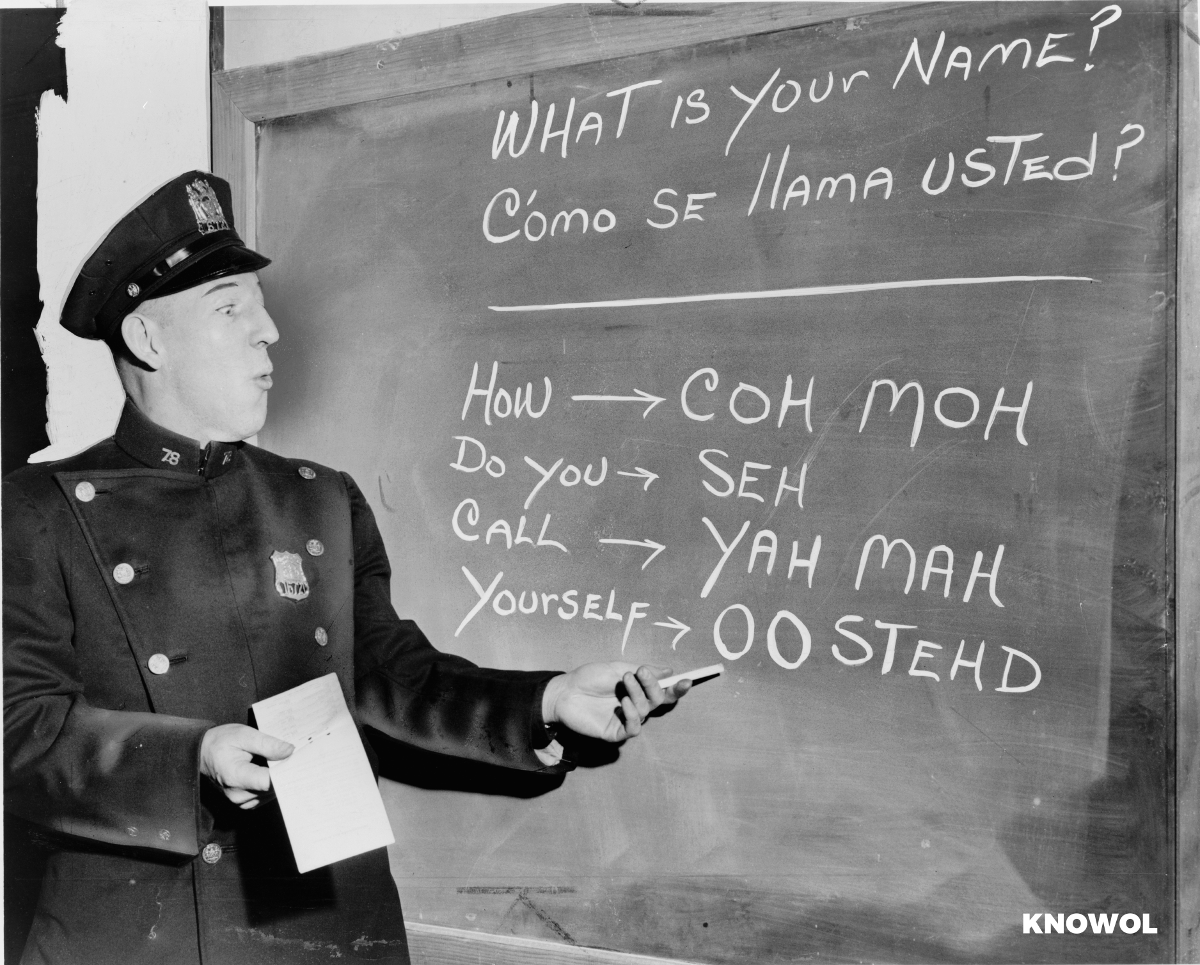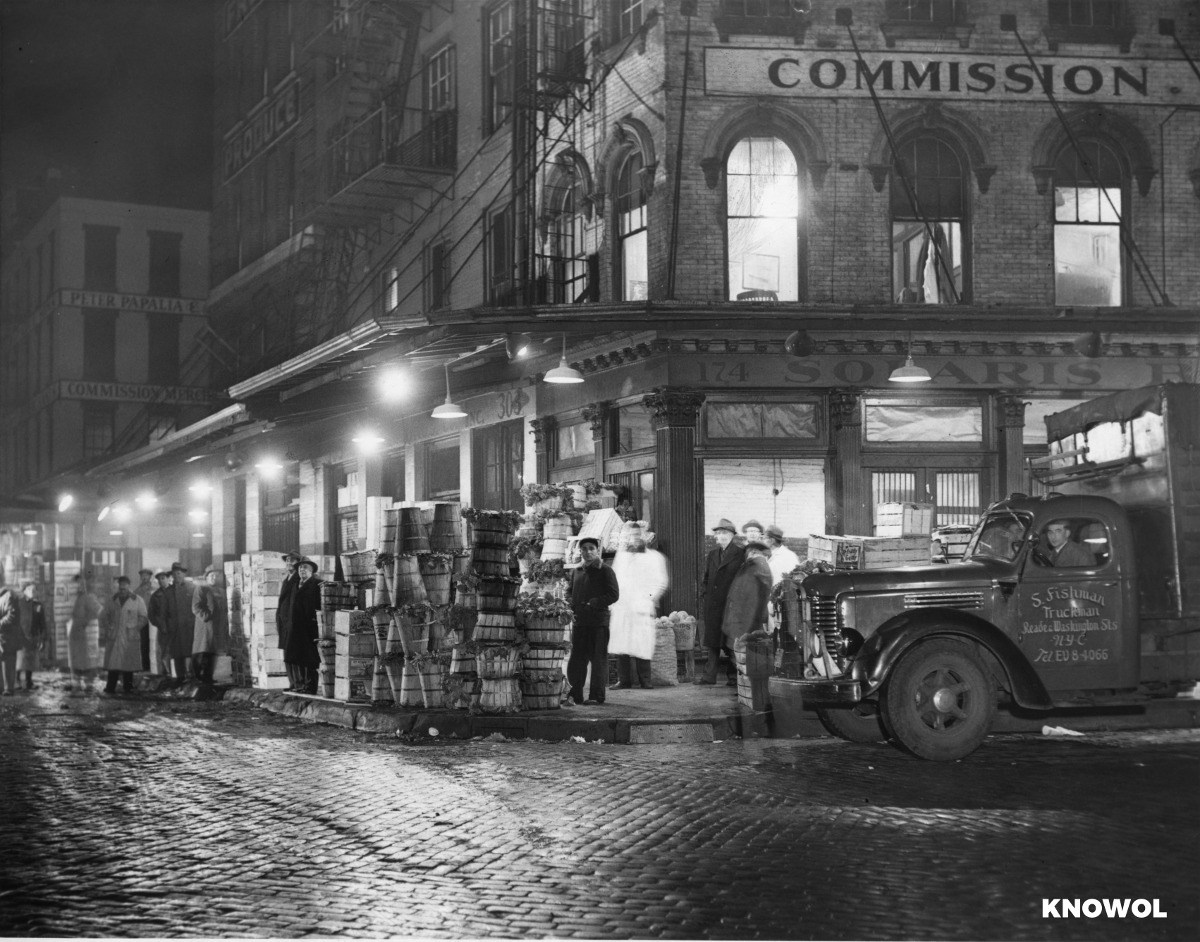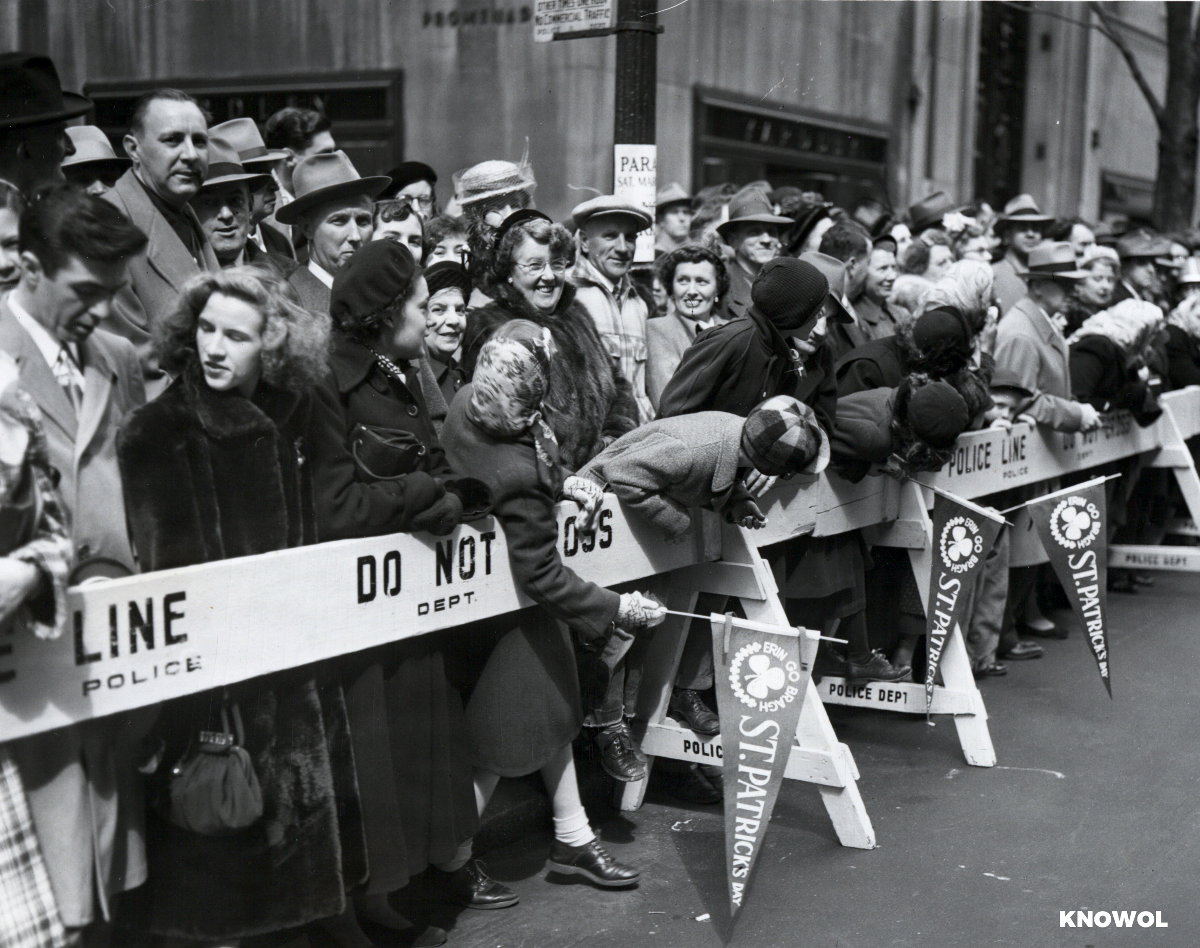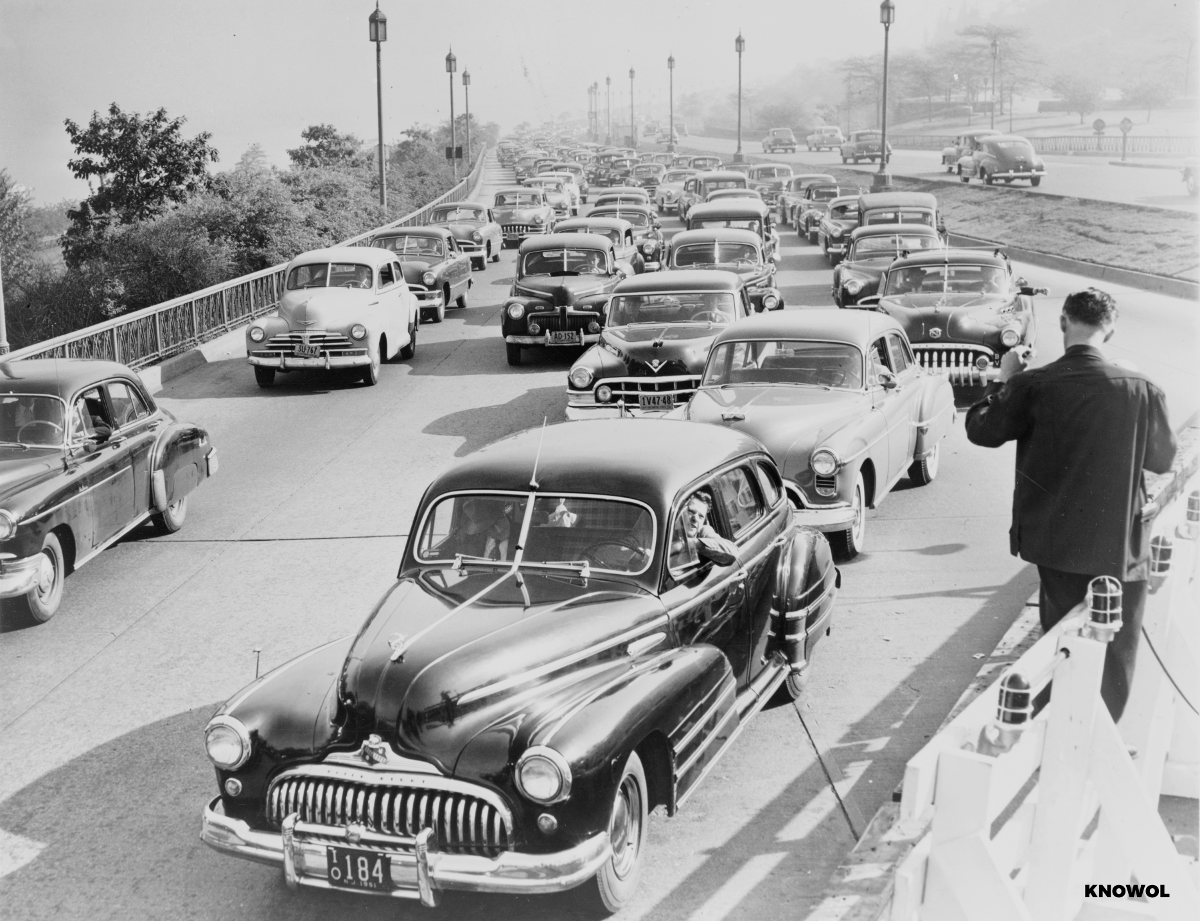Chasing the dream of prosperity
“When you set out on your journey to Ithaca, pray that the road is long, full of adventure, full of knowledge. Always keep Ithaca in your mind. To arrive there is your ultimate goal. But do not hurry the voyage at all. It is better to let it last for many years; (...)Ithaca has given you the beautiful voyage. Without her you would never have set out on the road. ”
(C.P Cavafy, “The Zahir” by Paulo Coelho)
In the general context of migration, a "better life" can have multiple meanings. Incidentally, it is also a concept that is embedded in the multiple interpretations of the so-called “American Dream”. This social myth is vaguely defined and has been a central topic of analysis in literature and academia. As Harold Bloom describes in his introduction to the book The American Dream. The “dream” embodies a collective aspiration that portrays the US as a nation in which everyone is free to pursue prosperity and happiness. For people immigrating to the US, the American Dream still represents the promise of a better future. No matter where you come from, financial wealth is always achievable, as long as you work hard and diligently. This is what my grandfather believed in almost blindly and his life as a young adult proved that this myth can become a reality.
A hero’s journey
While growing up, one of the most meaningful stories was my grandfather's epic journey to conquer his version of the American Dream. He did not have a moneyed background, he had just finished High School and had nothing else but his almost religious faith in that dream.
At the age of 19, he migrated to the US, worked three different jobs, and lived a life of middle-class luxury in New York, together with his family. He hustled and fought against every obstacle, all while saving money he would later take back to Quito, the capital of Ecuador. The details of his life in New York become blurred as they have been told so many times. My grandfather realised his dream of wealth, and when the struggle was over, he returned to Ecuador and never looked back. He views this feat as the ultimate path to success, and I believe this has notably influenced our family's search for happiness.
According to his logic, the success of every migrant's story can be measured by these standards: only a person that loyally returns to their home country with enough wealth to build an empire can be called a winner. This narrative leaves no place for deviation. For instance: what happens when you have nothing of financial value to show for the time you have spent abroad? What happens if you decide not to go back where you came from because you have already found a home somewhere else?
Quito is home
My grandfather always says that his most significant achievement was to return to Ecuador with enough money to show his friends and family what he had accomplished. The story of his journey has a happy end and Quito is home. It is his personal Ithaca, the place he fought to get back to. The way he speaks of his beloved city often reminded me of the Odyssey and Ulysses journey. New York was merely a sum of the obstacles, the monster he had to defeat in order to return to his beloved home. The dream of upward mobility was encased in that tale. The path to success was never questioned. We never talked about the family’s experiences with discrimination or the socio-economic structures that have impeded others from achieving the American Dream. If you do not succeed, are you just not working hard enough?
In the years after their return, my grandmother worked in a telecommunications company while my grandfather oversaw the construction of their home in one of the most affluent parts of Quito. Today, the walls of this house are covered with photographs, encapsulating my grandparent’s time in NY. There are scenes depicting events that are now tales the family knows by heart. My grandmother, on a porch, make-up on point, wearing an opulent fur coat, the barbeques in the summer, the trips with the car to the usual sightseeing spots. Those memories speak loudly of the "better life" my grandparents procured for their children, but override everything painful or sad. From my mother's perspective, those years are difficult to think about. She arrived as a child in New York and faced many hardships at school because she could not speak English. It was hard adjusting to this new city, far away from her grandmother and her aunt. She had no friends and often felt lonely. You can see it in her eyes, even when she smiles at the camera. The eyes of that 12-year girl with long hair have a melancholic dark tone that betrays that wholesome appearance of ‘la buena vida’.
Our family’s inheritance is that daring spirit but also a somewhat toxic work ethic that has motivated countless enterprises. It often demands sacrifices we have learned to make in order to be successful. Whenever we fail, the reason can always be traced back to our personal flaws. But, if we manage to overcome all obstacles, there is a happy end that can make every effort worthwhile: wealth and all it provides. The fulfillment of that dream, the only thing that carries true worth is money, a car, a house, meals in fancy restaurants, trips abroad, and everything that shines for the world to see. Financial wealth has always, to some extent, been the final goal to be achieved in our family.
Places of opportunity
When my mother, stepfather, brother, and I migrated to Germany, my grandparents were not happy about it. My mother was 38 and it had always been her dream to raise her children abroad, somewhere far from the expectations weighing on her. She was a rebellious divorcée, who had the audacity to marry a person her parents did not approve of. They could not understand the ways of her new German husband and they had no links to Europe or Germany. His home was a strange, far away place. My grandparents were hoping their daughter would follow in their footsteps and apply for a green card in the US instead. Maybe as they hugged us goodbye at the airport, they found solace in their belief that my mother would someday achieve what they had. However, the conditions of our story were different. Like her father, my mother aimed to provide her children with a better life than hers. However, she defined "better" on her own terms. Consequently, my mother's dream for us was less about wealth and more about knowledge. She always said that education was the most valuable thing that she could ever give us.
I feel respect for my grandfather's journey, and yet I have always found his epic tale hard to identify with. As a young Latin American woman in Germany I miss the female perspective, the voices of women in his account. Another reason is his emphasis on “the right” path to success. If anything, my experiences in Germany have taught me that the promise of success through hard work does not always deliver. The illusion of a meritocracy negates the influence hierarchies based on social categories such as gender and race have over economic structures. The land of opportunity is not available for everyone and not everything can be achieved on merit alone. However, I understand why it is so hard to let go of that dream.
Not long ago, I was struggling a lot with almost everything: writing my thesis, not having a job and living with my boyfriend at his mother’s place. During that time, I felt like anything I had accomplished was worthless. Based on my grandfather’s logic, I had obviously gone down the wrong path, because the equation is never wrong. If I was failing, I had only myself to blame, right?
Deconstructing “the dream”
While working through my anguish, I took a closer look at my grandfather's story. Seeking to understand his motivation helped me realize that our journeys had been entirely different. In many ways, my grandfather did not have the opportunities I have had. He did not have the luxury to ponder about the meaning of home or to define his path. He got on a plane with whatever little savings he had, armed with an ambition that aided him throughout the most challenging times. Anything he managed to achieve in NY that did not amount to his financial betterment did not matter. Personal growth did not matter. He wanted something tangible, that people could admire. What other choice did he have? What else could he do but come back as a hero after all the years he spent away from the people he loved? Would he have ever returned if he had not been successful?
My personal Ithaca
Today my dream is not about returning victorious to Ecuador, marrying and having children, and to prove to everyone I have accomplished something while I was gone. I wanted to define home as something more than a place to which you can only return gloriously. My dream is to find a place where I can feel comfortable being the way I am. However, in today's society it is hard for me to imagine an existence free of capitalistic desires. Even now, I find it difficult to distance myself from the definitions of happiness and prosperity I have inherited. We all have to face a modern world that comes with new expectations and at the same time creates new ways to remind us that a person’s value is measured by their success.
Yet, our story can be a story of creativity and passion and lazy, unproductive moments in the sun. There are so many other paths our generation has the chance to explore. We have the opportunity to create space for nuanced conversations about wealth and the unhealthy aspects of a productivity-based work ethic. This is especially relevant for migrant Latin American communities in which hard work and self-sacrifice are highly valued concepts. We can break with old patterns and prioritize mental health, our hobbies and the little things that bring us joy. For me, Ithaca is no longer a destination. It is about the journey with all these complex subtleties and moments of beauty I do not want to miss. I have the privilege to enjoy everything my grandfather had to discard. Thanks to his and my parent's dreams and especially their efforts, I get to have a dream of my own.
±
Persiguiendo el sueño de la prosperidad
View of the New York City skyline from City Hospital, March 14, 1950 ©Knowol
Cuando emprendas tu viaje a Ítaca debes rogar que el viaje sea largo, lleno de peripecias, lleno de experiencias. Conserva siempre en tu alma la idea de Ítaca: llegar allí, he aquí tu destino. Mas no hagas con prisas tu camino; mejor será que dure muchos años (...) No has de esperar que Ítaca te enriquezca: Ítaca te ha concedido ya un hermoso viaje. Sin ella, jamás habrías partido; mas no tiene otra cosa que ofrecerte.
(C.P Cavafy, “The Zahir” by Paulo Coelho)
En el contexto de los procesos migratorios, la búsqueda de una "vida mejor" puede tener múltiples significados. Adicionalmente, esta aspiración también es un concepto que está retratado en las múltiples interpretaciones del “sueño americano”. Este mito social está vagamente definido y ha sido un tema central de análisis en la literatura y la academia. Como describe Harold Bloom en su introducción al libro “El sueño Americano”, el "sueño" encarna una aspiración colectiva que retrata a los Estados Unidos como una nación en la que todos son libres de perseguir la prosperidad y la felicidad. Para las personas que emigran a los Estados Unidos, el Sueño Americano todavía representa la promesa de un futuro mejor. Sin importar de dónde uno viene, la riqueza financiera es alcanzable, siempre y cuando se trabaje duro y con diligencia. Esto es en lo que mi abuelo creía y su vida de joven demostró que este mito puede convertirse en realidad.
El viaje de un héroe
Una de las historias más elocuentes que escuche creciendo fue la anécdota épica del viaje de mi abuelo a Nueva York y cómo conquistó su versión del Sueño Americano. Ese joven audaz, no venía de una familia adinerada. El recién acababa de terminar la escuela secundaria y no tenía nada más que su fe casi religiosa en ese sueño. A la edad de 19 años, emigró a los Estados Unidos, trabajó en tres trabajos diferentes y vivió una vida de lujo de clase media en Nueva York, junto con su familia. El se esforzó luchando en contra de todos los obstáculos mientras ahorraba dinero que luego llevaría de regreso a Quito, la capital de Ecuador.
Los detalles de su vida en Nueva York se vuelven borrosos como se han contado tantas veces. Mi abuelo realizó su sueño de riqueza, y cuando la lucha terminó, él regresó a Ecuador y nunca volvió a mirar atrás. Él ve esta hazaña como el camino definitivo hacia el éxito, y creo que esto ha influido notablemente en la búsqueda de la felicidad en nuestra familia.
Según su lógica, el éxito de la historia de cada migrante se puede medir con estos estándares: solo una persona que regresa lealmente a su país de origen con la riqueza suficiente para construir un imperio puede ser considerada un éxito. Esta narrativa no deja lugar a desviaciones. Por ejemplo: ¿qué sucede cuando una no tiene nada de valor financiero que mostrar del tiempo que ha pasado en el extranjero? ¿Qué pasa si decides no regresar a tu país de origen porque ya has encontrado una casa en otro lugar?
Quito es nuestro hogar
Mi abuelo siempre dice que su logro más grande fue regresar a Ecuador con suficiente capital para mostrar a sus amigos y familiares lo que había logrado. La historia de su viaje termina felizmente con el regreso a su hogar Quito. Ella es su Ítaca personal, el lugar al que luchó por regresar. La forma en que habla de su amada ciudad a menudo me recuerda a las aventuras de Ulises en la Odisea. En este contexto, Nueva York simplemente representa una suma de obstáculos, el monstruo que tuvo que vencer para regresar a su hogar. El sueño del “ascenso socio-económico” estaba encapsulado en ese cuento. Su camino hacia el éxito nunca fue cuestionado. Nunca hablamos sobre las experiencias de la familia con la discriminación o las estructuras socioeconómicas que han impedido que otros logren el Sueño Americano. Esas son excusas, si no tienes éxito, ¿no será que no estás esforzando?
En los años después de su regreso al Ecuador, mi abuela trabajó en una empresa de telecomunicaciones mientras mi abuelo supervisaba la construcción de su casa en una de las zonas más prósperas de Quito. Hoy, las paredes de esa casa están cubiertas de fotografías, que resumen el tiempo de mis abuelos en Nueva York. Hay escenas que relatan eventos que se han convertido en leyendas que la familia se sabe de memoria. Mi abuela, posando en la veranda, maquillada perfectamente, vistiendo un opulento abrigo de piel. Las barbacoas en verano, los viajes con el coche a los clásicos lugares turísticos. Esos recuerdos hablan con orgullo de la "vida mejor" que mis abuelos procuraron para sus hijos, pero anulan todo lo doloroso o triste. Desde la perspectiva de mi madre, esos años están llenos de tristes recuerdos. Ella llegó de niña a Nueva York y enfrentó muchas dificultades en la escuela porque no podía hablar inglés. Fue difícil adaptarse a esta nueva ciudad, lejos de su abuela y su tía. No tenía amigos y a menudo se sentía sola. Ese dolor se puede ver en sus ojos, incluso cuando sonríe a la cámara. Los ojos de esa niña de 12 años con cabello largo tienen un tono oscuro melancólico que traiciona la imagen intacta de 'la buena vida'.
La herencia de nuestra familia es ese espíritu intrépido pero también una ética de trabajo un tanto tóxica que ha motivado innumerables empresas. A menudo exige sacrificios que hemos aprendido a hacer en nombre del éxito. Cuando nuestros proyectos fallan, aprendemos a encontrar la culpa en nuestras propias debilidades. Pero, si logramos superar todos los obstáculos, hay un final feliz que puede hacer que cada esfuerzo valga la pena: bienestar financiero y todo lo que proporciona. El cumplimiento de ese sueño es el dinero, un automóvil, una casa, comidas en restaurantes elegantes, viajes al extranjero y todo lo que brilla en los ojos del mundo. De cierta forma, la riqueza financiera siempre ha sido el objetivo final en nuestra familia.
Nuevas oportunidades
Cuando mi madre, mi padrastro, mi hermano y yo emigramos a Alemania, mis abuelos no estaban de acuerdo con las decisiones de su hija. Mi madre tenía 38 años y siempre había sido su sueño criar a sus hijos en el extranjero, lejos de las expectativas que pesaban sobre sus hombros. Ella es una mujer rebelde, en esos tiempos divorciada, que tuvo la audacia de casarse por segunda vez con una persona que sus padres no aprobaban. Mis abuelos no podían entender las costumbres de su nuevo marido alemán y no tenían vínculos con Europa o Alemania. Su hogar era extraño y lejano. Ellos esperaban que su hija siguiera sus pasos y solicitara una green card en los Estados Unidos. Me imagino que cuando nos despidieron con un abrazo en el aeropuerto, encontraron consuelo en su fe de que mi madre algún día lograría lo que ellos tenían. Sin embargo, las condiciones de nuestra historia fueron diferentes. Al igual que su padre, mi madre tenía como objetivo brindarles a sus hijos una vida mejor que la de ella. Sin embargo, definió "mejor" en sus propios términos. En consecuencia, el sueño de mi madre para nosotros tenía menos que ver con la riqueza y más con el conocimiento. Ella siempre dijo que la educación era lo más valioso que podía darnos.
Siento respeto por el viaje de mi abuelo y, sin embargo, siempre me ha resultado difícil identificarme con su historia épica. Como joven latinoamericana en Alemania, siempre me faltó la perspectiva femenina, las voces de las mujeres en su relato. Otra razón es su énfasis en el camino "correcto" hacia el éxito. En todo caso, mis experiencias en Alemania me han enseñado que la promesa de éxito a través del trabajo duro no siempre se cumple. La ilusión de una meritocracia niega la influencia que las jerarquías, basadas en categorías sociales como el género y la raza, tienen en las estructuras económicas. La tierra de las oportunidades no está disponible para todos y no todo se puede lograr a base de méritos. Sin embargo, puedo entender por qué es tan difícil dejar ese sueño.
No hace mucho, estaba luchando mucho con casi todo: tenía dificultades acabando mi tesis, no encontraba trabajo y vivía con mi novio en la casa de su madre. Durante ese tiempo, sentí que todo lo que había logrado no valía nada. Según la lógica de mi abuelo, obviamente había tomado el camino erróneo, porque la ecuación nunca se equivoca. Si estaba fallando, solo podía culparme a mí misma, ¿verdad?
De-construyendo el “sueño”
Mientras intentaba no dejarme ganar por mi angustia, eché un vistazo más de cerca a la historia de mi abuelo. Al intentar comprender sus motivaciones, pude darme cuenta de que nuestros viajes habían sido completamente diferentes. En muchos sentidos, mi abuelo no tuvo las oportunidades que yo tuve. No tuvo el lujo de poder reflexionar sobre el significado de hogar o de definir su camino. Se subió a un avión con los pocos ahorros que tenía, armado con una ambición que le ayudó en los momentos más desafiantes de su estadía en los EEUU. Todo lo que no equivaliera a una mejoría financiera como sus reflexiones y sentimientos, su crecimiento personal, no fueron de gran importancia. El deseaba algo tangible, que la gente pudiera admirar. ¿Qué otra opción tenía? ¿Qué más podía hacer sino volver como un héroe después de todos los años que pasó lejos de las personas que amaba? ¿Habría regresado al final si sus planes no hubieran sido exitosos?
Mi propia Ithaca
Hoy mi sueño no es volver victoriosa al Ecuador, casarme y tener hijos para demostrarles a todos que he logrado algo durante esos largos años de ausencia. Quiero definir “hogar” como algo más que un lugar al que solo puedes regresar gloriosamente. Mi sueño es encontrar un lugar donde pueda sentirme feliz siendo yo misma. Sin embargo, en la sociedad actual me resulta difícil imaginar una existencia libre de deseos capitalistas. Incluso ahora, me resulta difícil distanciarse de las definiciones de felicidad y prosperidad que he heredado. Todos tenemos que enfrentarnos a un mundo moderno que tiene sus nuevas expectativas pero al mismo tiempo nos recuerda que el valor de una persona todavía se mide por su éxito.
Sin embargo, podemos vivir una vida lleno de creatividad y pasión y momentos vagos e inútiles bajo el sol. Hay tantos otros caminos que nuestra generación tiene la oportunidad de explorar. Tenemos la oportunidad de crear espacios de conversaciones matizadas sobre la riqueza y los aspectos poco saludables de una ética de trabajo basada en la productividad. Esto es especialmente relevante para las comunidades latinoamericanas migrantes en las cuales el trabajo duro y el auto-sacrificio son conceptos todavía muy valorados. Podemos romper con los viejos esquemas y priorizar la salud mental, nuestros pasatiempos y las pequeñas cosas que nos brindan alegría. Para mí, Ithaca ya no es un destino. Se trata del viaje con todas estas complejas sutilezas y momentos de belleza que no me quiero perder. Tengo el privilegio de disfrutar de todo lo que mi abuelo no tuvo la oportunidad de disfrutar. Gracias a sus sueños y los de mis padres y especialmente a sus esfuerzos, ahora tengo la libertad de crear mi propio sueño.
References:
Images: Knowol
Bloom, Harold, and Hobby, Blake , eds. The American Dream. Infobase Publishing, 2009.


